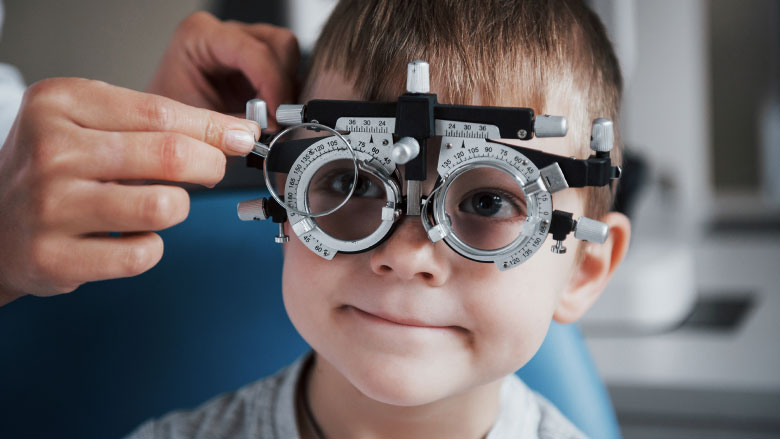Are you interested in pursuing a career that helps people to see every little detail in their view, whenever they can? You might contemplate becoming an optometrist or an optician. All two categories of these eye physicians are crucial in delivering eye care, but their roles differ, and it is essential to comprehend the difference. Let’s dive in to understand their roles in healthcare;
What Is an Optician?
An optician is skilled in designing, testing, and fitting contact lenses, spectacles, lenses, frames, and other vision-rectifying equipment. Opticians are eye care experts who cannot perform eye exams. In addition, opticians cannot examine, treat, or issue prescriptions for eye anomalies but rely on prescriptions provided by an optometrist. After successful graduation from high school, opticians are well equipped and certified after two years. For more information on the different services provided by fully trained opticians, check out Bills Opticians. Based in Newton Abbot, they’ve been providing quality eye care for almost four decades.
What Is an Optometrist?
An optometrist conducts eye evaluations and vision examinations, prescribes and dispenses remedy lenses, identifies anomalies, and prescribes drugs for eye care. To qualify to operate as an optometrist, one has to attend four years at the institution of optometry after successfully finalizing four years of college.
Importance of Optimal Eye Health Care
Everyone, including young children, requires frequent eye exams. It safeguards your vision and allows you to see your finest. Eye exams can indeed detect illnesses that have no symptoms, namely glaucoma. It’s critical to identify them beforehand when they are effortless to cure. In far more ways than we may understand, we all rely on our vision.
Our capacity to function, play, commute, or even identify a face might be severely hampered if we do not have good eyesight. Many variables can impact our eyesight, comprising of other health issues such as diabetes or hypertension.
Medically, having a family relative with eye illness might increase your chances of developing the ailment as well. Sight-robbing eye illness can strike at any time. In reality, ignoring eye care harms your quality of life as well as your finances. Statistics show that as people age, they tend to experience several types of eye disorders and the dangers of vision loss.
Suppose you are apprehensive about eye disorders such as cataracts, poor vision, glaucoma, retinopathy, diabetes and macular degeneration. In that case, you should preserve your eyesight today because even a little eye care now will be triumphant toward keeping your eyesight in subsequent years of your lifetime.
While it is important for a self-eye care routine, seeing an optometrist for specialist diagnosis is essential. They offer thorough eye care and can spot and treat the majority of eye diseases.
A thorough eye examination may contain the following procedures:
• Discussing your family and individual medical history
• Vision tests to rule out if you are long-sighted, shortsighted, have astigmatism (a bent cornea that causes blurred vision) or have presbyopia (vision problems associated with aging)
• Examination of your eyes, both externally and microscopically, before and after dilatation
• Glaucoma is detected by optic nerve testing and eye pressure.
• Examinations to determine how effectively your eyes function together
Care tips for healthy eyes
Amongst visiting eye specialists, you have to adhere to some safety tips for optimal eye health. Take a quick look at these tips;
1. Put on your sunglasses.
The proper sunglasses will safeguard your eyes against the sun’s ultraviolet radiation. Excessive UV exposure escalates your danger of macular degeneration and cataracts.
Select a pair that filters 99 to 100 percent of ultraviolet B and ultraviolet A radiation.
2. Eating a healthy diet
You are what you consume, and so is your vision. Nutrient-rich foods such as omega-3 fatty acids, vitamin C and E, zinc, and lutein safeguard your eyes from age-associated eye disorders such as macular degeneration and cataracts.
3. Avoid Extreme Computer Screen Exposure
Glancing at a computer or phone screen for an extended time can hurt your eye health. Overexposure to computer and phone displays might cause the following eye problems:
• Focusing on far away objects
• Eye dehydration
• Eyestrain
• Hazy vision
For the above eye problems, you can resolve them by;
• If your eyes get dehydrated, blink more frequently.
• Adjusting your prescription for eyewear or contacts for screen exposure
• Seeking adequate medical attention if you have chronic eye strain and thinking about computer eyewear if you work with computers.
4. Being observant of any arising eye changes and abnormalities
Consulting your eye specialist regularly is a good habit to develop, but don’t rely exclusively on it. Maintain alertness over your eyesight and keep a watch out for any abnormalities in your vision. These abnormalities may include;
• Blurry vision
• Persistent discomfort and swelling in the eyes
• Light flashes regularly
Shirley Mist has been involved in fashion and design for many years. She has also written extensively for many online publications. She currently writes for The Tribune World and is a valued member of our team.